This Invermere, B.C. thought leader’s motto could be “bringing power to the people”
Eden Yesh is a systems thinker who wants to decentralize energy and finance
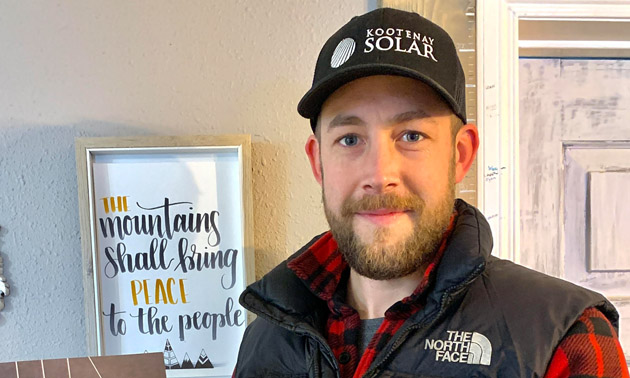
Eden Yesh believes in decentralizing power by creating our own economic destinies via community investment cooperatives and by providing our own power through solar photovoltaics. — Photo credit: Lisa Yesh
Eden Yesh believes our society is at a critical juncture.
“There's a massive shift happening in the structures that underpin our entire society, locally and globally,” he said recently from his new offices in downtown Invermere, B.C.
He believes the solution is to give power to the people–not large corporations or national governments. He has spent the last 10 years decentralizing finance systems in a non-profit organization and now plans to spend the next 10 years decentralizing energy systems as a for-profit entrepreneur.
To describe Yesh as a systems thinker would be an understatement. This thought leader thrives on thinking holistically to solve problems and implement solutions that are not always mainstream but are based on environmental and economic sustainability and community benefit.
He believes that synchronicity has played a big part in his life so far, and he marvels at both the differences and synergies between the non-profit world and the for-profit world, where he now serves as CEO and president of Kootenay Solar and Rocky View Solar.
“Stepping into the for-profit world feels like an unleashing of my creativity,” he said. “I can now focus my waking hours on the clean energy transition through the electrification of heating and cooling buildings and transportation—solar, electric vehicle chargers and electric heat pumps.”
And what triggered the dramatic leap from a steady salary in a non-profit to a start-up for-profit entrepreneurial life? His sleep app.
“It was survival,” he said. “My sleep app was an average of five hours a night in 2021 and 2020.”
KootenayBiz interviewed Eden Yesh in December of 2021 about his groundbreaking work with community investment cooperatives, his soaring solar business and the values that make him tick as a thought leader and a family man.
A Creston kid and a unique Kootenay education
Yesh grew up in Kingston, Ontario, but moved to Creston when he was five or six years old. His family had a pool so their home was where everyone hung out.
“I was a sponge,” Yesh said. “I remember adults saying to me when I was a kid, ‘Wow, you just soak it up. You're just so curious.’
“I loved new information and always asked for more. I still do. I'll absorb it and it will be in there and I can recall it. My mind locks it in a vault and then I can use it in a completely different setting from when I learned it way back when.”
While Yesh was working for Kootenay Employment Services (KES), he had the chance to study sustainable community economic development through Simon Fraser University. This post-grad study required five years of experience in the field before admission.
As luck or synchronicity would have it, the university decided to “reverse engineer” the course.
“Everybody used to have to fly from around the country to Simon Fraser in downtown Vancouver,” said Yesh. “They did a Kootenay cohort. So they flew all the instructors from Washington D.C., from Ontario, from everywhere into the Nelson Selkirk College King Street Campus. And these instructors loved that because they usually fly into an urban centre.
“It was very engaging … training in the Kootenays with like-minded individuals and Kootenay-relevant information. There were 15 of us that I still talk to today, and they're all in different positions of influence working on systems changes.”
Yesh worked for KES for 12 years and worked his way up to one of three senior managers in the organization.
“I oversaw massive opportunities and significant growing pains with the organization,” he said. “We went from 10 staff when I started to 67 staff when I left. We expanded into the East Kootenay and set up four offices, so I oversaw the East Kootenay expansion from Creston’s 30-year-old employment centre.”
Community Investment Cooperatives decentralize financial systems
During his tenure at KES, Yesh was doing community economic development work and setting up community investment cooperatives (CICs) and advocacy coalitions across western Canada with great success.
A CIC is a community-owned and -controlled impact fund that keeps currency local. (For a detailed explanation of CICs, see our previous article.)
First, Yesh helped form three CICs in the Kootenays and then expanded his efforts across British Columbia. From there, he worked on a National Community Investment initiative with the federal government and oversaw a learning community from B.C. to Manitoba. At this point, Yesh said there were about 30 CICs in western Canada and about 60 in total across the country.
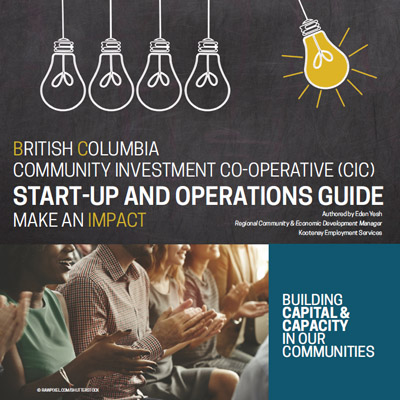
Published in Creative Commons, Yesh is proud of the free 320-page guidebook he documented to explain the process of setting up an investment co-op.
These CICs were his “baby,” and he was so committed to the idea that he worked 40 to 60 hours a week setting up these community finance ecosystems. Over his 12 years at KES he secured several million dollars in grants and completed 13 contracts, many of which focused on CICs. As project manager, he oversaw and worked closely with dozens of professionals and organizations across Canada.
To share his expertise and knowledge, and to ensure the development and success of future CICs, Yesh also secured funding from the Vancouver Foundation and the federal government to document the entire process on how to set up an investment co-op. Published in Creative Commons, the free guidebook is 320 pages of best practices, and downloadable and editable templates for others to follow.
“It's now been replicated in five other provinces in Canada through their securities and corporate and co-operative laws,” he said. “My fingerprint on that sector is there for good. I set up and ran the BC Community Impact Investment Coalition for four years. Now the BC Co-operative Association and Canadian Community Economic Development Network are keeping it alive and well, two organizations I’ve worked with for many years and trust deeply.”
Of all his professional accomplishments to date, Yesh said he is most proud of the guidebook.
“Over 500 guidebooks have been downloaded,” he said. “It's pretty insane to comprehend the ripples this could create.”
The reckoning of an overworked professional
While Yesh was still at KES, he and his business partner, electrician Stu Bilodeau, started Kootenay Solar in 2019. Their first 12 projects were completed on afternoons and weekends, while both worked their full-time jobs. With massive projects and commitments at KES, Yesh felt he couldn’t leave.
“I was the project manager and point person on community investment in western Canada,” he said. “That's what I've been doing 40 to 60 hours a week—setting up community finance ecosystems. It was who I was. Now I was doing an extra 40 hours a week setting up two successful solar businesses,” he said.
Finally, one day he had an “identity crisis” and he headed to the forest and left his cell phone in the truck.
“I have to separate from my cell phone at times like these,” he said, “and I have to bring a notepad and pen and just sit for an hour or two and just write myself questions like ‘who are you? What is most important? How can I be of greatest service and impact?’ Then, of course, I had to weigh out the pros and cons of each career.”
Yesh pondered the differences between the non-profit world and the for-profit world. And he thought about job security and the well-being of his family, that is, a wife who is also a full-time professional and their two young children.
“Do I continue another 12 years of nonprofit charitable work, begging funders to see the value of the innovative work we were trying to achieve at KES? Or should I slip into being a for-profit entrepreneur full-time, leaving behind a healthy salary for me and my young family, and explore the unbridaled for-profit world? Am I going to do this?” he asked himself.
The answer was “yes.”
“Almost immediately after that session, I gave four months' notice to my employer (KES) and several other provincial and national firms I was working with,” Yesh said. “It was a choice for the highest impact I could make on climate action. It was also a survival choice. My sleep app was an average of five hours a night in 2021 and 2020. It was a hard choice as I had dear friends and colleagues in the community investment sector.”
Kootenay Solar decentralizes energy systems
Business has been extraordinary for Kootenay Solar, a solar design and installation company serving the entire Kootenay–Boundary region and recently expanding into southern Alberta. With three full-time partners and five full-time staff, the business just signed a lease on the old co-working space in downtown Invermere to house the growing workforce.
“We did 800 quotes in 2021 in the Kootenays alone. We completed 56 projects this year, 40 of which were since September,” Yesh said. “We've already pre-booked 32 residential and commercial projects in the Kootenays for 2022 and are looking at utility-scale projects in Alberta.
“We did $300,000 in sales in 2020. For 2021, we've still got billables coming in at $1.4 million and we're not even finished this year,” Yesh said. “It's been absolutely crazy growth and we’re just trying to keep up. Unfortunately, we have been losing business and getting some bad PR because we have not been able to increase our staff fast enough so we may go two to three months without getting back to leads. This is changing in 2022 as Kootenay Solar is undergoing an HR expansion and capital raise.
“I didn't realize the freedom of the for-profit world until the last two or three weeks when I'm actually coming up to year end and realized we’re fiscally healthy. We’re not eating beans this winter. Far from it—we’re flipping net profits back into the company to hire more staff to better serve our growing client base.
“We brought on four staff this year. We have eight subcontractors, which consist of electrical firms, structural and electrical engineers, and marketing and advertising professionals. We’re training some top-notch electrical firms across the Kootenays to assist us in scaling up our operations and our overall impact on the clean energy transition in our region.”
Yesh calls the solar panels on your roof a mini power plant and promotes them as decentralized power systems and a great return on your investment. He effuses their benefits as ecological, societal and financial.

— Photo credit: iStock.com/Elenathewise
“In the long run, it’s more affordable for you to generate your own electricity through rooftop or ground-mount solar than to pay 100 per cent each and every month to your utility provider,” he explained. “It's around eight to nine cents per kilowatt hour levelized cost of energy over a 25-year period, the typical length of the system's warranty. That’s nearly half the price of BC Hydro’s current Step 2 rate of 14 cents per kilowatt hour, which increases year after year with inflation.
“You are saving money and you're reducing your carbon footprint. The second you turn your solar array on, you start saving money on your utility bill. Kootenay Solar also educates and promotes complementary products to reduce your carbon footprint, such as heat pumps and electric vehicle chargers. Replacing a propane furnace with an electric heat pump will reduce carbon emissions 98 per cent, and a heat pump is 300 per cent more efficient than baseboard heaters. There's also a grant right now from the federal government that will cover up to $5,000 for solar. Therefore, a basic five-kilowatt solar array can be paid back in as little as six to seven years.”
To add to their amazingly successful year of 2021, Kootenay Solar expanded into southeastern Alberta in February.
Yesh explained, “One of my longtime friends and groomsmen, Dan Meyer, who is a master electrician in Alberta, has been watching what's happening with us. Dan said, ‘Let's replicate this in Alberta. I’ve wanted to do solar for 10 years and the time is now!’
“So we took our entire legal precedent documents, marketing scheme and everything and replicated the entire back office. Kootenay Solar is a shareholder and manager of Rocky View Solar Corp. It's already landed its first five projects, and we're bidding on a megawatt project that is also interested in small-scale hydrogen production. It’s surreal to say the least.”
Rocky View is a sister corporation and they staff-share with Kootenay Solar.
Yesh’s through-the-roof excitement mirrors the phenomenal growth of his business.
“The non-profit chains are broken. I have a vision, and we’re gaining momentum on that front,” he said.
When Yesh can catch his breath, he plans to use his economic development background to quantify the company’s impact to answer questions such as:
- How much greenhouse gas emissions did we reduce this year because of our work?
- How many jobs did we create directly and indirectly?
Yesh does have a warning about the popularity of solar installations.
“We're an honest company that won't push solar on people that it won't make sense for,” he said. “We know there are solar installers that will sell you anything. It's the Wild West out there, and capitalists are capitalizing on it. Look out for installers trying to push batteries or solar installs in heavily shaded areas or north-facing roof pitches.”
Speaking of values, Kootenay Solar donates one percent of its profits to local charities and non-profits. They started with the Columbia Institute of Renewable Energy, a non-profit think-tank Yesh and his colleagues set up to generate year-round economic development opportunities in the clean energy sector in the Kootenays.
The future of this trailblazer
Big plans are unfolding at Kootenay Solar, and they may prove to be the biggest synchronicity happening in Yesh’s life so far.
“We're doing some pretty incredible things right now that would set a precedent for both the Kootenays and Canada,” Yesh said.
The synchronous big news is that Yesh is making a deal for his venerated investment co-ops to finance his own business.
“None of the 60 CICs across Canada has ever syndicated a deal with each other across regions,” he said. “And I'm hoping to have all three CICs in the Kootenays syndicate a deal to prove that they can work together in our region. To overcome long supply-chain issues and to help with the clean energy transition in the Kootenays, Kootenay Solar is partnering with the three CICs to undertake a significant capital raise to expand operations.
“We hope to pay our financiers off quickly. We want to offer CICs—and therefore Kootenay residents—the opportunity to finance our growth. And we want CICs to have the first right-of-refusal to fund us in the future.”
It’s a win-win for local investors and Kootenay Solar, and it again proves the fast growth of the fledgling company.
“We used to purchase 300 panels at a time,” Yesh said, “and now we’re purchasing 3,000 panels at a time.

— Photo credit: iStock.com/cosmin4000
“And when I show the potential—the power—of this regional collaboration for funding and for investors to become part of the journey, I think I'm going to prove the model for other businesses to take an honest look at where they are getting their financing and who is benefiting from the interest income. We should be repatriating Kootenay investment capital and wealth creation into our local communities. Currently, a large majority of businesses get their financing from national banks whose headquarters are in Ontario, which builds wealth, recreation centres and resilience elsewhere.”
What’s Yesh’s main message to society?
“I'm not against globalism, but I'm saying we can create resilient and local economic ecosystems that can be replicated across a global level. It starts with decentralizing finance, power production and next food production within specific geographic regions such as the Kootenays,” he said. “The blueprint can be replicated anywhere. It’s a new take on capitalism, which has for too long been unbridled and focused on centralizing wealth and increasing shareholder profits at all costs. We change the way societies function by keeping the best of capitalism but by making decisions with three other primary drivers—social, environmental and community. I call it Community and Co-operative Capitalism.
“My last 10 years were setting up decentralized finance systems. My next 10 years are setting up decentralized power systems. Now these local Kootenay investment funds and several others in Alberta have the opportunity to finance local clean energy production and transitions.
“We need to be terrified about what climate change is doing to our fragile and volatile ecosystems, transportation systems, food systems, economic systems and our entire geopolitical systems,” he said. “But we also need to be absolutely exhilarated by the opportunity that's at hand because for the first time in history so many of our fundamental systems can be decentralized and depoliticized using the technologies at our fingertips. The clean energy transition is decentralized, including growing food, producing power and moving your money back home.
“So we can either be terrified of the systems that are crumbling and live in a polarized state of mind or we can be exhilarated at the systems that are breaking through and step up to the plate and take action and make change. There's a paradigm shift happening in the structures that underpin our entire society, both locally and globally.”

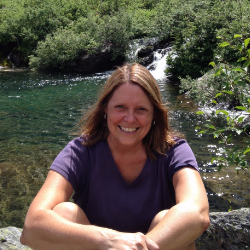
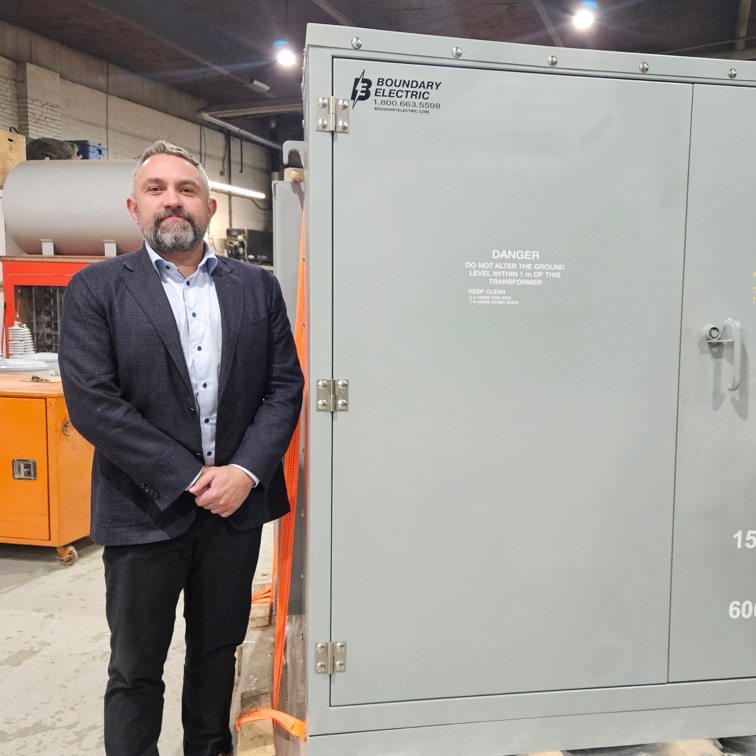
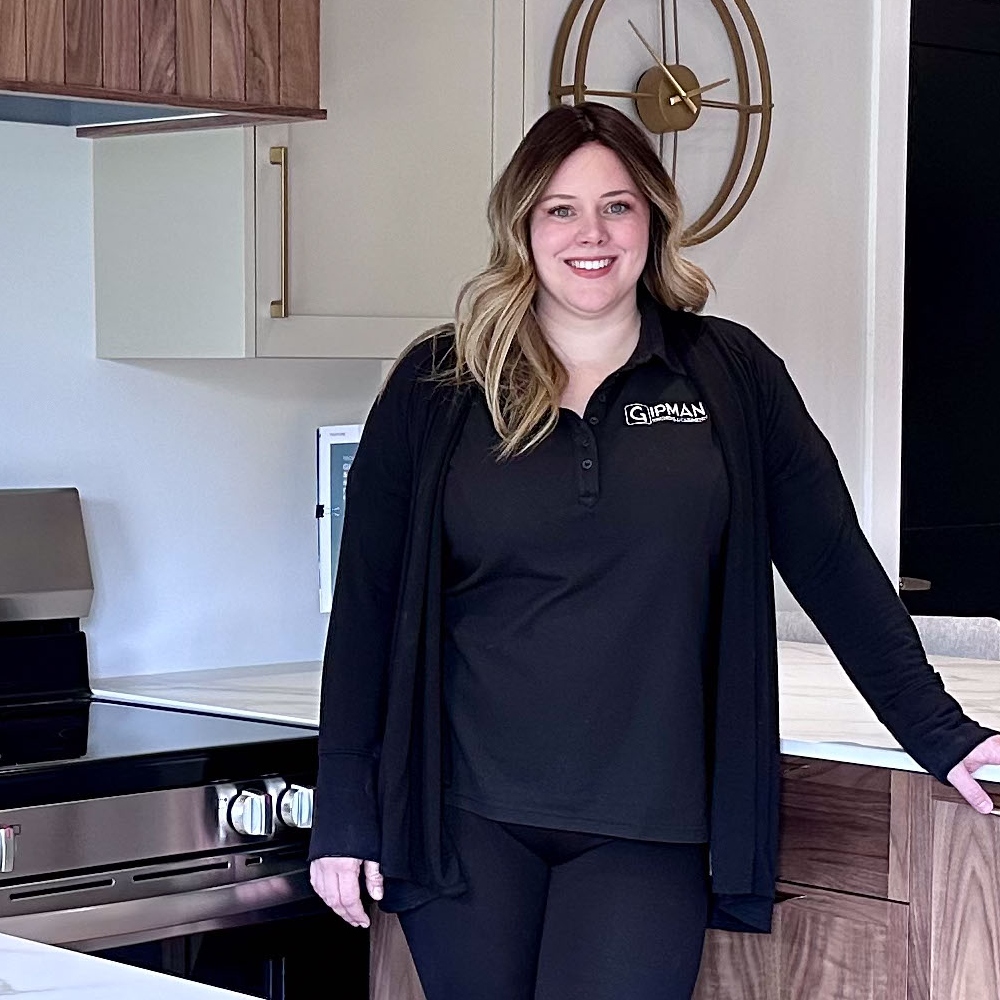


Comments